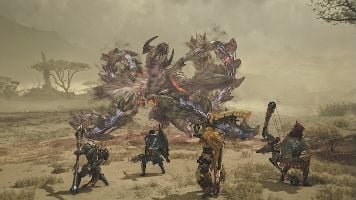The clash between mythological figures from different pantheons sparks endless fascination. What happens when Nezha, the fiery Chinese trickster god, faces off against Greek or Norse legends? This article explores such hypothetical battles, analyzing their powers and cultural symbolism. Who would prevail, and what do their abilities reveal about the societies that revered them?
Nezha vs. Greek Titans: Speed Against Strength
Nezha, the celestial warrior of Chinese lore, embodies rebellion, agility, and divine fire. With his Wind Fire Wheels, he moves with unmatched speed, while his cosmic ring and fire-tipped lance strike precisely. In contrast, Greek figures like Heracles or Ares rely on raw strength and endurance. While Heracles defeated the Hydra with sheer might, Nezha’s combat style emphasizes cunning and mobility—reflecting how Chinese culture often values strategy over brute force.
However, if Nezha faced Apollo, the god of prophecy and light, the battle shifts. Apollo’s foresight and archery skills might counter Nezha’s speed, symbolizing the Greek emphasis on wisdom guiding power. These clashes reveal deeper contrasts: Greek heroes triumph through destiny (like Achilles’ fate), whereas Nezha, born from defiance, wins through adaptability—a key virtue in Daoist and Confucian thought.
Nezha in the Norse Realm: Fire Against Frost
In Norse mythology, Nezha’s fiery nature clashes with the frost giants or Thor, the thunder god. Thor’s hammer, Mjölnir, summons storms and brute force, embodying Viking ideals of unyielding power. Yet Nezha’s flames represent purification and transformation in Chinese belief—more than mere destruction. His battle against Jörmungandr, the Midgard Serpent, would pit agility against primal chaos, mirroring how Norse myths see fate as inevitable, while Nezha’s tales champion overcoming cosmic trials through ingenuity.
Meanwhile, facing Loki, the trickster, the duel becomes symbolic. Both are rebels, but Loki’s mischief often brings ruin, whereas Nezha’s defiance seeks justice. Here, Norse mythology views chaos as cyclical, while Chinese traditions see rebellion as a force for balance—highlighting how each culture interprets disruption in their myths.
The outcome of these mythical showdowns hinges on cultural values: Greek fates, Norse inevitability, and Chinese adaptability. Nezha’s victories lie in his versatility, reflecting a philosophy where harmony trumps dominance. In the end, these battles aren’t about winners—they reveal how myths encode the ideals of their people, offering timeless lessons in resilience, wisdom, and balance.


